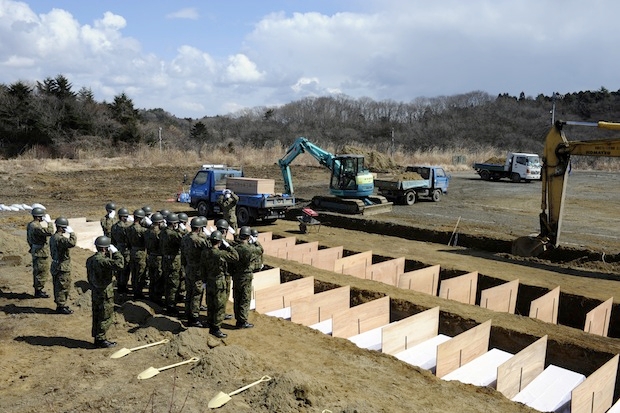During Japan’s lost decade in the 1990s I found myself handing out rice balls to Tokyo’s homeless on the banks of the Sumida river. The former salary men — it was always men — slept in cardboard boxes the size of coffins. I peered into one. Its owner had neatly arranged his last few possessions. Crockery, two wash rags and a blanket were all emblazoned with the designer logos I associated with Japan’s boom years when I had lived in Tokyo. They had washed up like artefacts from another age in this unlikely setting. They signalled more than anything else to me that Japan’s economic miracle was well and truly in the past.
Financial Times Asia editor David Pilling lived in Japan for seven years. His latest book, Bending Adversity, does an excellent job of reappraising those lost years of economic deflation and social and political stagnation. His argument is simple. What happened to Japan is now coming to the West. After the collapse of Lehman Brothers and the subsequent global financial crisis, nearly every western government faces similar problems to Japan. We had better get used to living if not in a cardboard box then at least in a life without growth.
The book emphasises the resilience of the ordinary Japanese in comparison to a corrupt and arrogant political culture. ‘What Japan needs is a really good earthquake,’ advocated one senior official from the Ministry of Finance as an answer to Japan’s economic woes. Well he got his wish. The 2011 Tohoku earthquake and tsunami was so ‘good’ it shifted the earth on its axis and killed 19,000 people. Whether it has fixed Japan’s economic problems is open to question.
Pilling starts and ends with moving descriptions of the tsunami and its victims’ fortitude. From ground level the first thing most people saw of the tsunami was
a ghostly dust rising from buildings that were collapsing in the water’s path.

You might disagree with half of it, but you’ll enjoy reading all of it
TRY 3 MONTHS FOR $5
Our magazine articles are for subscribers only. Start your 3-month trial today for just $5 and subscribe to more than one view
Already a subscriber? Log in






Comments
Join the debate for just £1 a month
Be part of the conversation with other Spectator readers by getting your first three months for £3.
UNLOCK ACCESS Just £1 a monthAlready a subscriber? Log in